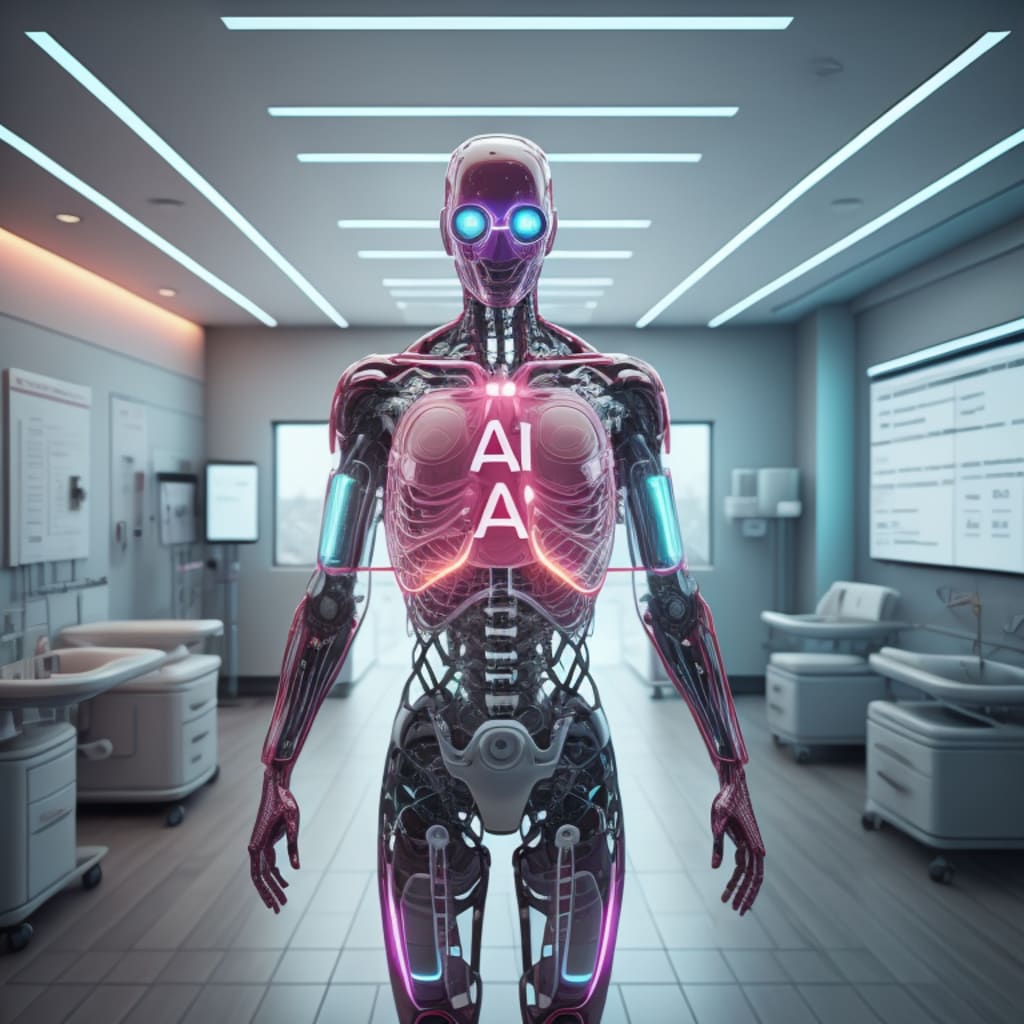Embracing the Power of Technology: Inspiring Innovations Shaping Our Future
Artificial Intelligence (AI) Enhancing Healthcare

Artificial Intelligence (AI) Enhancing
AI systems are designed to perceive their environment, understand and interpret data, reason and make decisions, and learn from past experiences or examples. These systems use various techniques and algorithms to analyze data, identify patterns, and make predictions or recommendations based on the available information.Healthcare
Artificial Intelligence (AI) has revolutionized various industries, and one area where its impact is particularly noteworthy is healthcare. The integration of AI technologies in healthcare systems has shown tremendous potential in enhancing patient care, improving diagnostic accuracy, and streamlining administrative processes. From diagnosing diseases to predicting patient outcomes, AI is transforming healthcare in ways that were previously unimaginable.
One of the key areas where AI is making a significant impact is in medical imaging. Traditional methods of medical imaging, such as X-rays and MRIs, generate vast amounts of data that can be time-consuming for healthcare professionals to analyze. AI algorithms can quickly process this data, identify patterns, and assist in diagnosing diseases like cancer, cardiovascular conditions, and neurological disorders. These algorithms can analyze medical images with remarkable precision, often surpassing human capabilities and leading to earlier detection and more accurate diagnoses.
AI-powered diagnostic tools are also being developed to analyze patient symptoms, medical history, and lab results to provide healthcare professionals with valuable insights. By comparing a patient's data with vast amounts of existing medical records and research, AI algorithms can assist in identifying potential diseases or conditions, suggesting treatment options, and predicting patient outcomes. This not only helps doctors make informed decisions but also improves patient care by reducing errors and optimizing treatment plans.
Moreover, AI is playing a crucial role in improving patient monitoring and personalized care. Wearable devices equipped with AI algorithms can continuously monitor a patient's vital signs, such as heart rate, blood pressure, and respiratory rate. These devices can analyze real-time data, detect abnormalities, and alert healthcare providers in case of emergencies. AI-powered monitoring systems can also identify trends and patterns in patient data, helping healthcare professionals detect early warning signs and intervene before a condition worsens.
In addition to diagnosis and monitoring, AI is streamlining administrative processes and optimizing healthcare operations. AI-powered chatbots and virtual assistants are being deployed to handle routine tasks such as appointment scheduling, prescription refills, and answering patient queries. This frees up valuable time for healthcare professionals to focus on more complex cases and patient care. AI algorithms can also analyze vast amounts of data, such as electronic health records and clinical research, to identify inefficiencies in healthcare systems and suggest improvements for better patient outcomes.
Furthermore, AI is advancing the field of genomics and personalized medicine. By analyzing vast genomic datasets, AI algorithms can identify genetic predispositions to diseases, predict treatment responses, and guide the development of targeted therapies. This enables healthcare professionals to deliver personalized treatment plans tailored to an individual's unique genetic makeup, leading to more effective and efficient healthcare interventions.
However, as AI continues to transform healthcare, it is important to address ethical considerations and ensure transparency and accountability. The use of AI in healthcare raises concerns about data privacy, algorithm biases, and the potential for AI to replace human judgment. Striking the right balance between AI automation and human expertise is crucial to ensure that AI technologies are used as tools to augment healthcare professionals rather than replace them.
In conclusion, AI is revolutionizing healthcare by enhancing diagnostic accuracy, improving patient monitoring, optimizing operations, and advancing personalized medicine. The integration of AI technologies in healthcare systems has the potential to improve patient outcomes, reduce healthcare costs, and increase overall efficiency. However, it is important to approach AI implementation in healthcare with caution, addressing ethical considerations and ensuring that AI technologies are developed and used in a responsible and transparent manner. With ongoing advancements and further research, AI will continue to play a pivotal role in transforming healthcare and revolutionizing patient care.





Comments
There are no comments for this story
Be the first to respond and start the conversation.